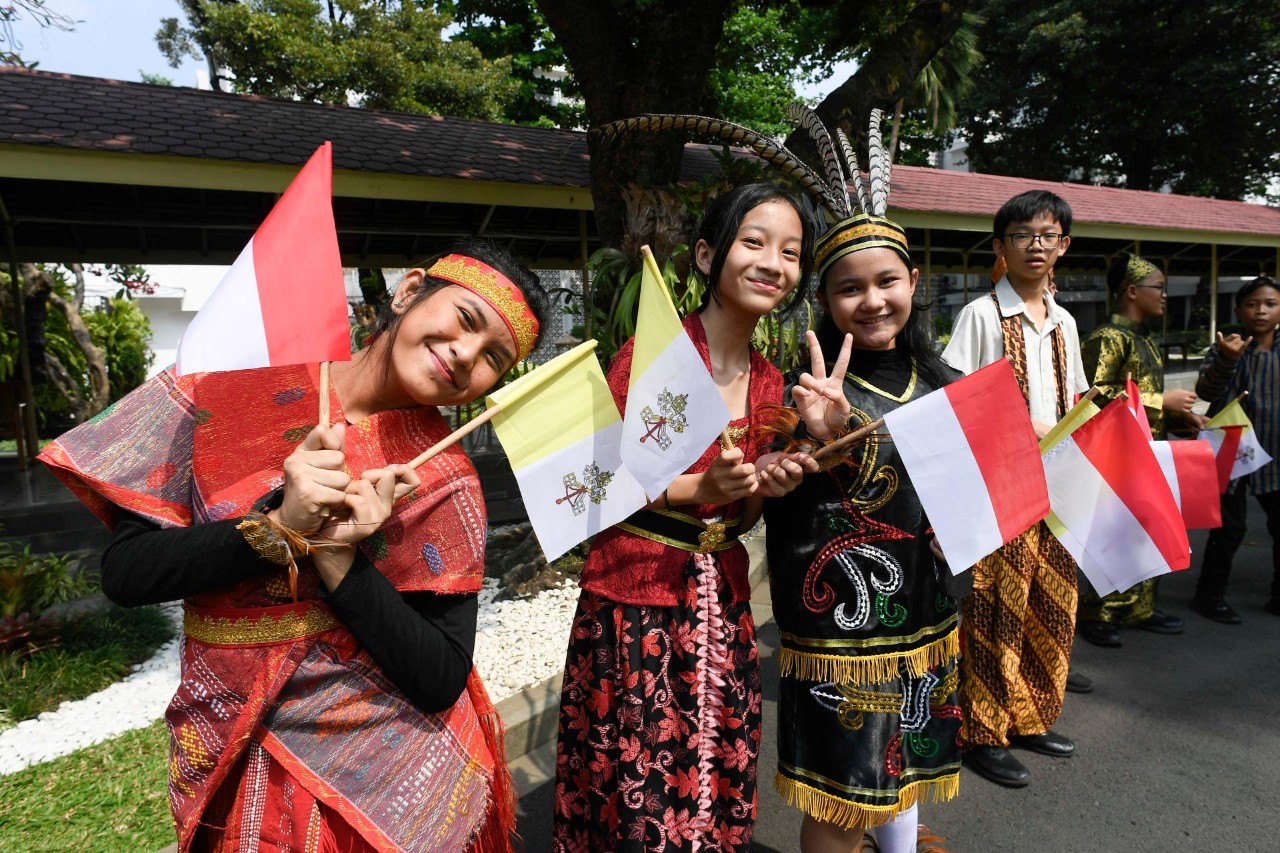The national director of the Pontifical Mission Societies (PMS) in Indonesia has emphasized the importance of social justice in the country, saying Pope Leo XIV’s vision offers timely guidance for both society and the Church’s mission.
“Social justice is one of the central themes today for a great nation like Indonesia, an emerging nation on the international scene. It is also a crucial issue for the Church’s mission in Indonesia,” said Father Alfonsus Widhiwiryawan, a Xaverian missionary from Java, in an interview with Fides News Agency.
Fr. Alfonsus highlighted the pope’s recent address to the Diplomatic Corps, where Pope Leo XIV declared that “the pursuit of peace requires the practice of justice.”
Citing his predecessor Leo XIII, author of the encyclical Rerum Novarum, the pope said, “in the era of change we are experiencing, the Holy See cannot fail to make its voice heard in the face of the numerous imbalances and injustices that cause, among other things, undignified working conditions and increasingly fragmented and conflict-ridden societies.”
“It is also necessary to correct global inequalities, where opulence and poverty leave deep gaps between continents, countries, and even within individual societies,” the pope added.
Fr. Alfonsus said these challenges are evident in Indonesia, which is characterized by wide regional, cultural, religious, and economic diversity.
“The risk is fragmentation, even within the Church itself,” he warned. “That is why our national motto is unity in diversity, and we are called to practice it every day also within the Church.”
He noted that social justice is not only a Christian concern but is also enshrined in Pancasila, Indonesia’s foundational charter, and “a particularly relevant issue for many Muslim organizations.”
Indonesia’s Catholic bishops have likewise taken up the call. In a joint Lenten message for 2025, the bishops of the Flores region appealed for “justice for the poor and a renewed commitment to Gospel values.”
They voiced alarm over geothermal development projects that, they said, “harm the environment, food security, social balance, and cultural sustainability.”
They also addressed persistent child malnutrition, calling it “not simply a question of health, but of justice.”
The bishops wrote, “All children deserve food, love, and dignity,” and urged stronger nutrition programs and support for vulnerable families.
This renewed focus on social justice comes amid scrutiny of President Prabowo Subianto’s economic agenda.
While his administration has launched a school canteen initiative and a budget reform program, the latter has drawn criticism over job cuts and the suspension of scholarships through 2025.
“Instead of allocating public resources to welfare measures that bring easy consensus, the government should consider and implement policies capable of stimulating economic growth, combating unemployment, and promoting authentic and sustainable development,” said Fr. Alfonsus.
Pope Francis also underscored the importance of social justice during his 2024 visit to Indonesia. In his address at the Presidential Palace in Jakarta, the late pontiff called for a “true and far-sighted commitment” to ensure that no one is left “on the margins, without a dignified existence and without any defense against the serious social imbalances that trigger acute conflicts.”
“In a rapidly changing society,” Fr. Alfonsus concluded, “the Indonesian Catholic Church is called to understand and expand its mission, reflecting and actively engaging in the field of social justice.”







